Assessment of Jack Johnson's Residency Status for Australian Tax
VerifiedAdded on 2023/03/23
|5
|622
|35
Homework Assignment
AI Summary
This assignment provides a legal analysis to determine whether Jack Johnson qualifies as an Australian resident for income tax purposes for the year ending June 30, 2018. It applies relevant sections of the Income Tax Assessment Act 1997, specifically focusing on the domicile test and the 183-day test. The analysis considers Jack's intention to reside permanently in Australia and the duration of his stays within the income year. Based on the information provided, the assignment concludes that Jack does not meet the criteria for Australian residency due to his lack of intention to establish permanent domicile and potentially not meeting the minimum stay requirement of 183 days. The document references relevant case law to support its conclusions.
1 out of 5
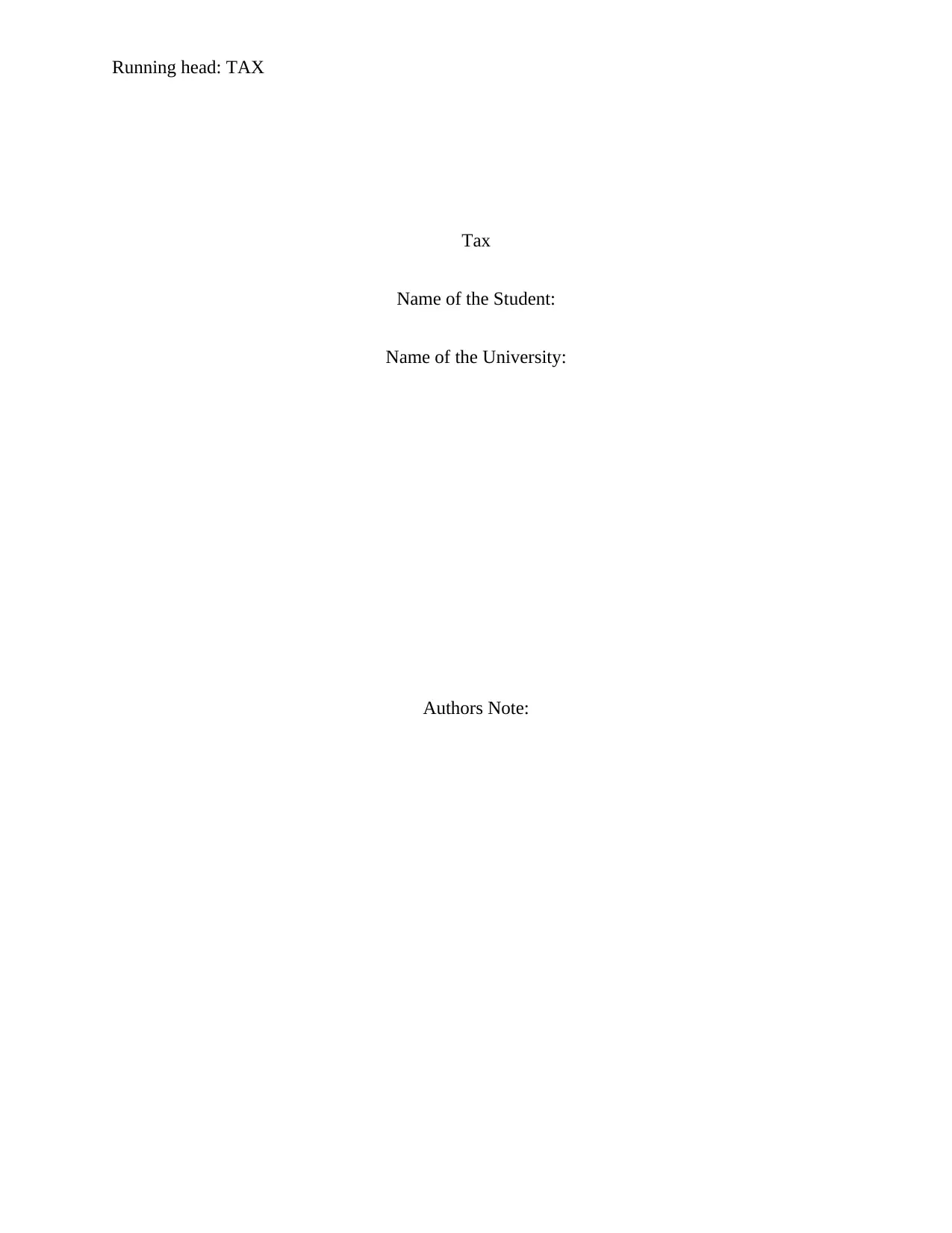
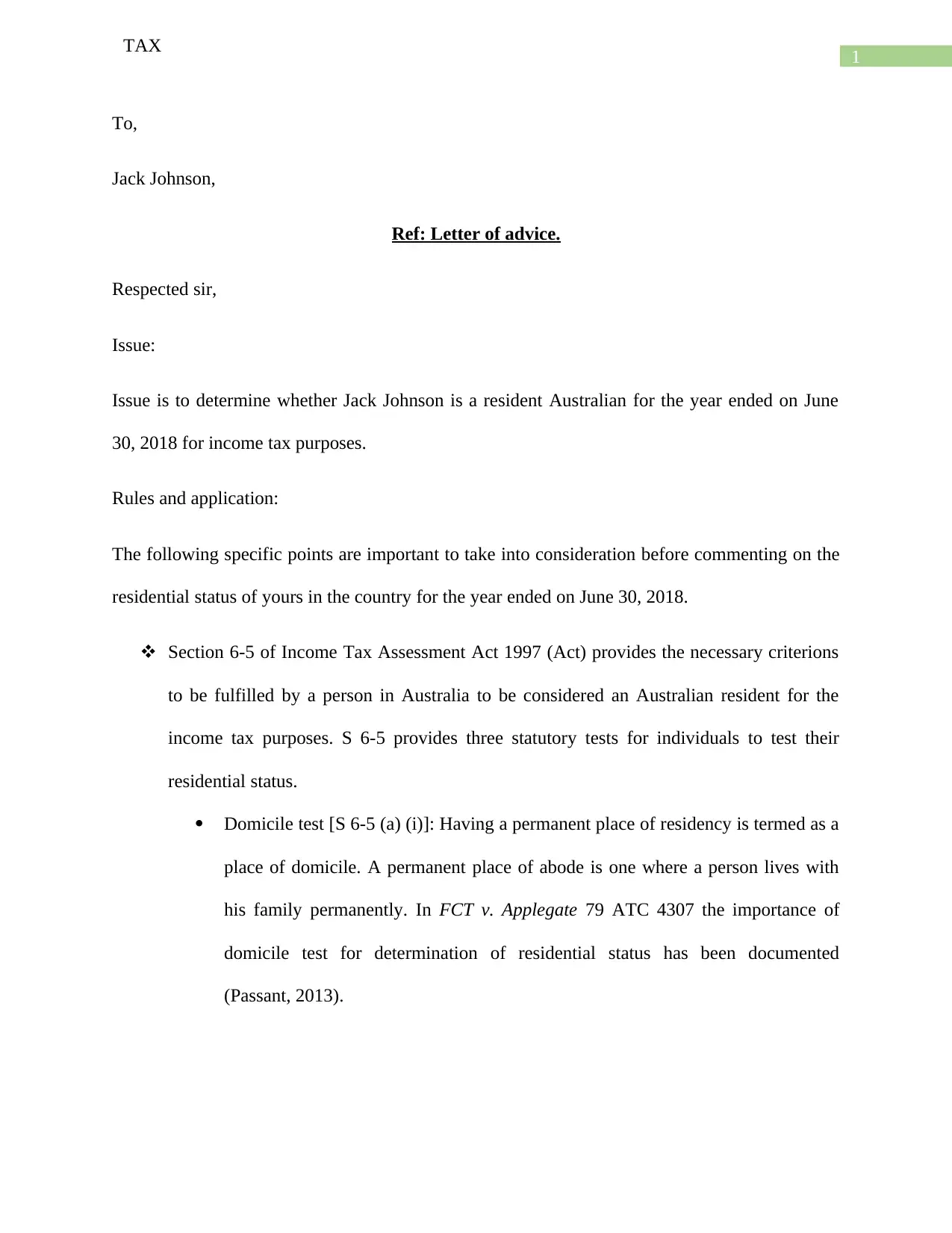
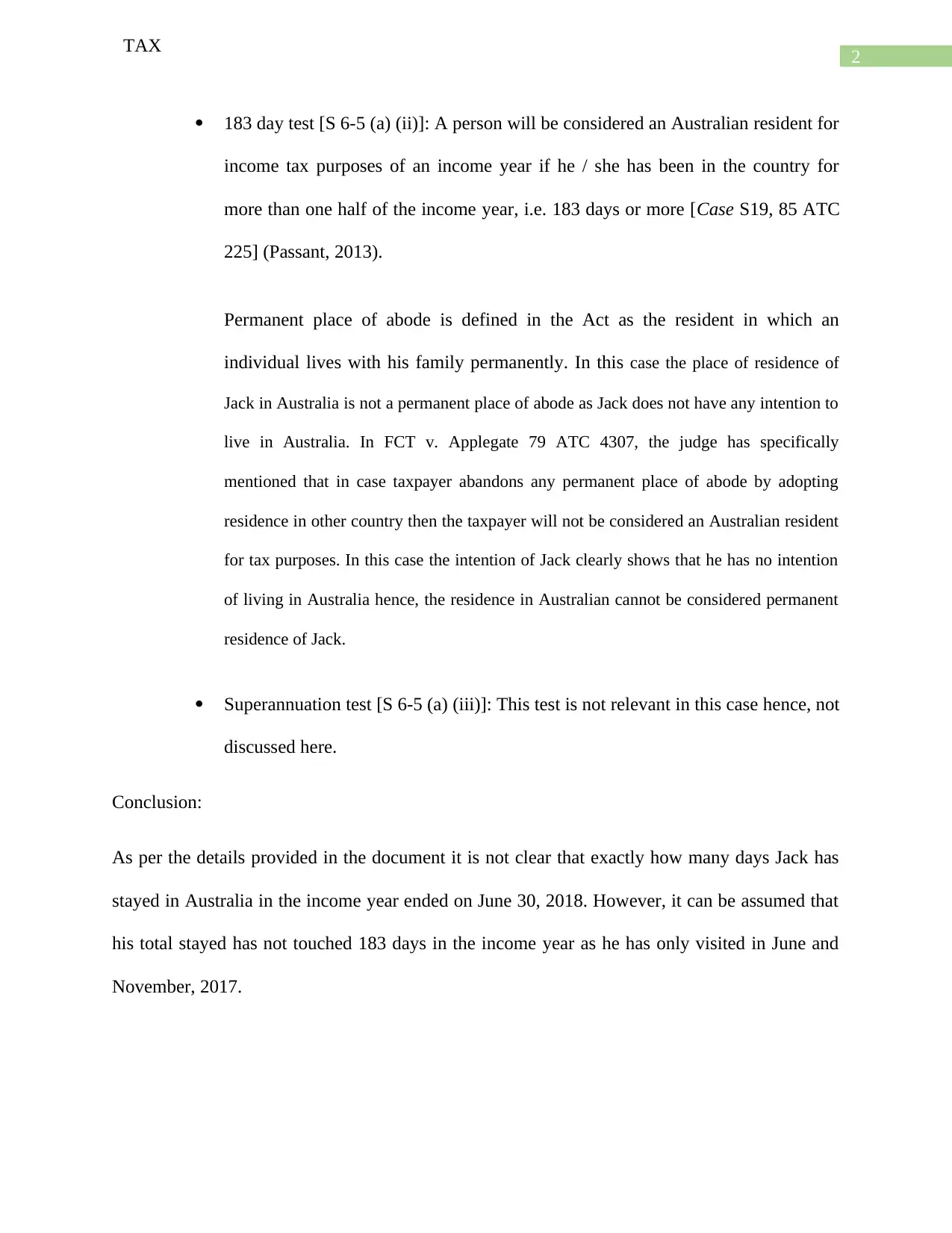

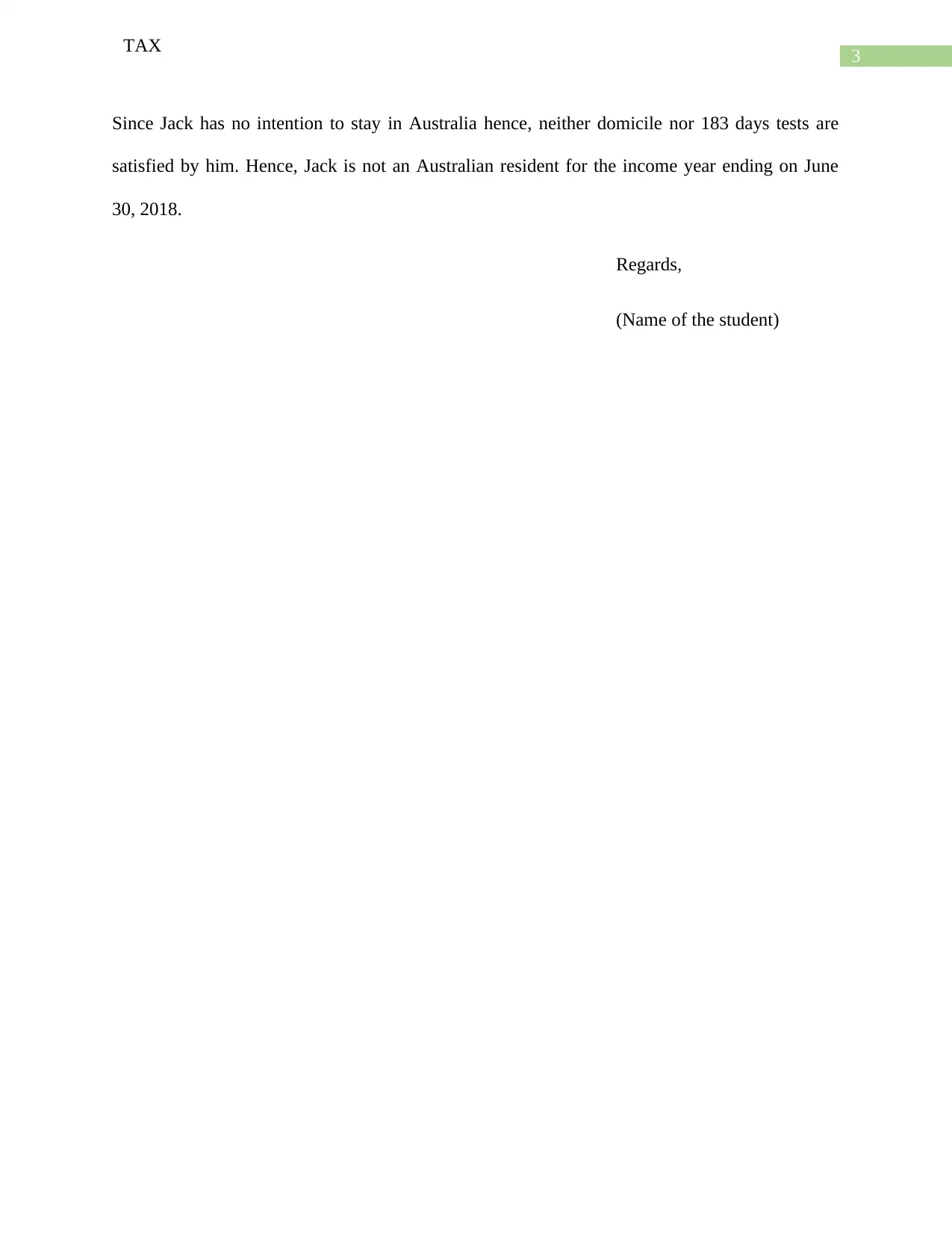
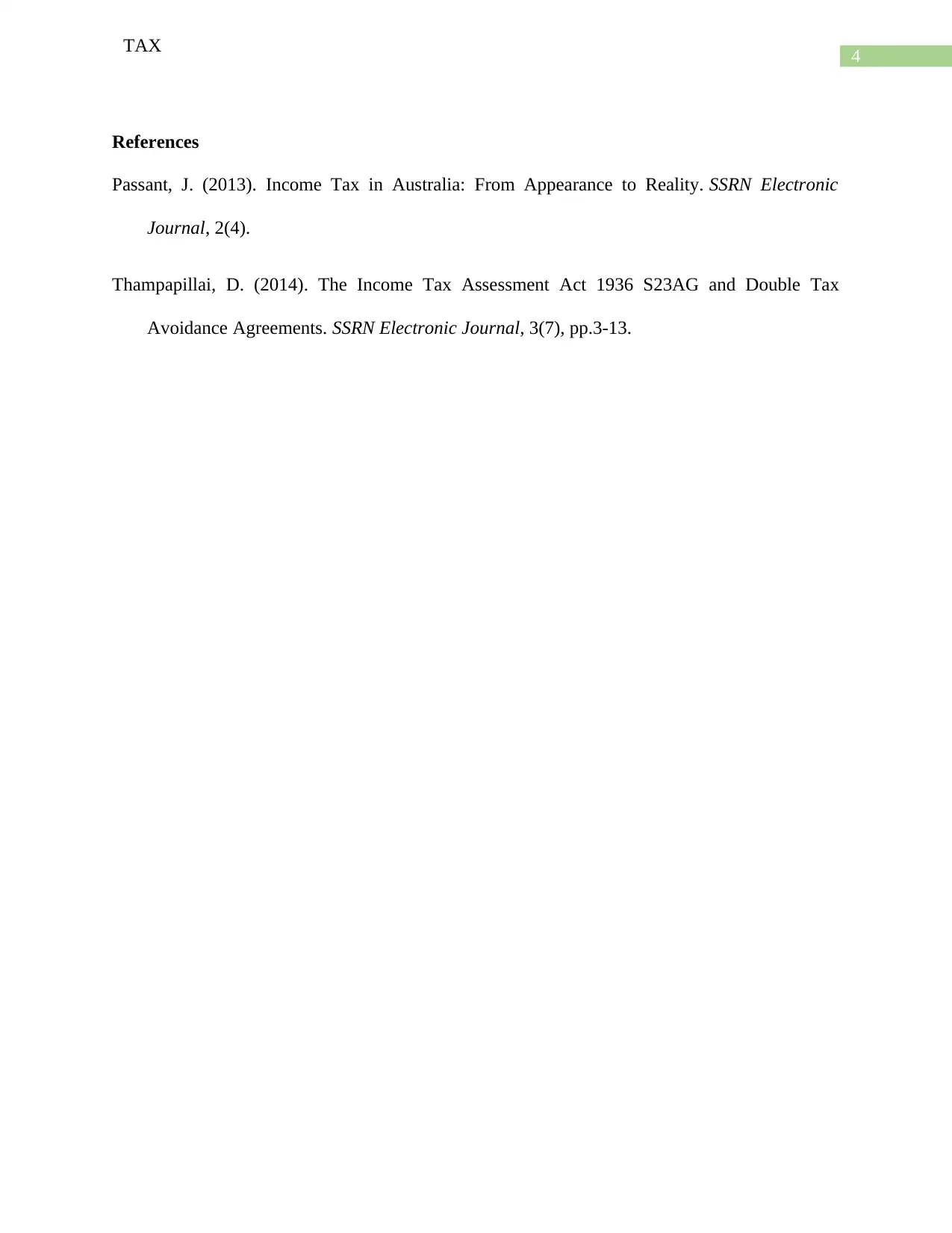






![[object Object]](/_next/static/media/star-bottom.7253800d.svg)